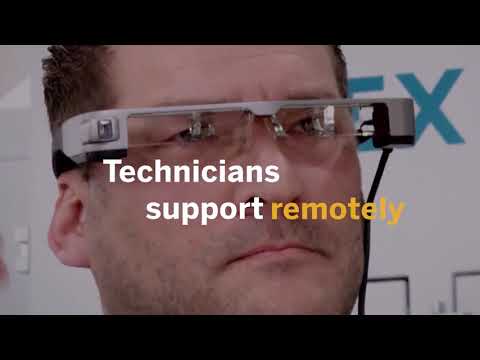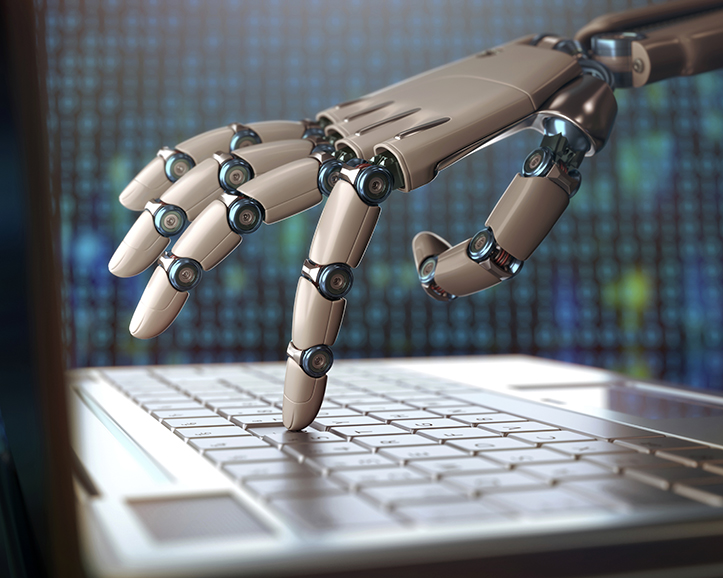Many of us take advantage of Internet of Things (IoT) innovations in our personal lives, where the benefits of connected sensors and IoT are well understood. But what excites me is the transformative promise of IoT in the industrial world. That is why we are kicking off a series to showcase the business value of the Industrial Internet of Things (IIoT).
In the industrial sector, IIoT has emerged as a significant value driver in the manufacturing industry. It has changed the way goods are produced and delivered by connecting all phases of the design-to-operate product life cycle, including ideation and conceptualizing, manufacturing, delivery, and operations.
A Need That Is Here to Stay: Building Resilience Beyond the Crisis
The strong uptake of IIoT reflects an increasing need for business resilience. Even before the pandemic, manufacturing companies operated in an increasingly volatile environment, requiring them to adapt quickly to shifting priorities. COVID-19 accelerated this trend. As consumer demands changed dramatically and manufacturing capacities were constrained, supply chains broke, forcing businesses to cope with the disruption of their daily operations.
While the world will hopefully overcome COVID-19 at some point, new health, societal, geopolitical, or economic crises are likely to occur. That is why an increased need for business and supply chain resilience is here to stay — and IIoT and Industry 4.0 will help take us there.
When we look at which companies were able to overcome these challenges, it is clear that it was highly digitalized businesses capable of taking informed decisions based on real-time data. IIoT technologies played a major role in helping them to repurpose production, provide help where needed, and find alternative routes to maintain supply chains.
Take INDEX-Werke as an example: the traditional supplier for the automotive industry kept its own business and that of its customers running throughout the crisis. Based on SAP Commerce Cloud, INDEX-Werke offers its parts online and provides technical support remotely.

The opportunities are enormous, but many companies that I speak with are wondering where and when to start. Given the disruption we see among our customers in almost every industry, I believe that companies can start small, but should start now.
Introducing New Business Models: From Product to Outcome
IIoT enables new business models and the shift from selling products to delivering services and solutions. The underlying idea of outcome-based models is that customers pay for what they get out of a product rather than for the product itself. In addition, IIoT opens the door to a fully personalized customer experience. Data exchange between a customer and a smart factory makes it possible to produce a highly customized product within just a few days — from receiving an order to shipping the goods.
For example, when VEM, a leading manufacturer of electronic motors, was looking for a way to differentiate its products, the company identified a growing demand for remote monitoring. Together with SAP, the company created a custom app with monitoring and alerting capabilities. VEM’s sensor-equipped motors not only reduced operational downtime and extended product lifetime, they also helped achieve a 25% revenue increase. Most importantly, the company was able to reinvent its business model completely.
Operating in Industry Networks: If the Ecosystem Wins, Everyone Wins
Just recently, I talked with Cedrik Neike, CEO Digital Industries at Siemens, about the importance of partnerships to accelerate the industrial transformation. We spoke about moving from enterprise resource planning (ERP) to network resource planning, and from “ego-systems” to ecosystems where the players strive for added value together.
At SAP, we envision that enterprises will exchange data via an industry network of suppliers, machine manufacturers, and customers. We are addressing this with SAP Business Network and thereby enabling a shift from a seller/buyer paradigm to collaborative models. When, for example, data from production quality records is shared between suppliers and manufacturers, they can collaboratively resolve warranty claims and recalls.
SAP actively uses and contributes to various industry standards that build the foundation for industry networks. SAP helped incubate the Open Industry 4.0 Alliance in 2019, with the goal of creating guidelines for compatible and interoperable IIoT solutions and services. Joint standards between the systems of different players in our ecosystem help drive digitalization in factories, plants, and warehouses in a collaborative manner.
Sharing data beyond a company’s borders adds even more value for all the players, from original equipment manufacturers (OEMs) to suppliers and consumers. Strong networks rely on cooperation among companies within and across industries. SAP is a founding partner of the Automotive Alliance, Catena-X, which aims to create a unified business network for the automotive industry. The alliance’s goal is to create a consistent information exchange through the entire automotive value chain.
From Concept to Execution
Today, we have all the technology and applications at hand to connect devices, people, and processes. Making use of data across the entire product and service life cycle is the foundation of managing business processes end to end.
To sustain long-term success, it is imperative for companies to move from concept to execution. This also requires a shift in our mindset. We need to rethink how data is used and set common standards. We need to rethink how businesses run and be open to new business models. And we need to rethink how markets work and move from the buyer/supplier relational paradigm to a collaborative model.
If we see IIoT and Industry 4.0 as both an urgent need and an opportunity, we will not only achieve continuous optimization but we will also generate added value — both for the ecosystem we operate in and for our customers.
Thomas Saueressig is a member of the Executive Board of SAP SE, SAP Product Engineering.
This story previously appeared on LinkedIn.
This article first appeared on the SAP Global News Center.



